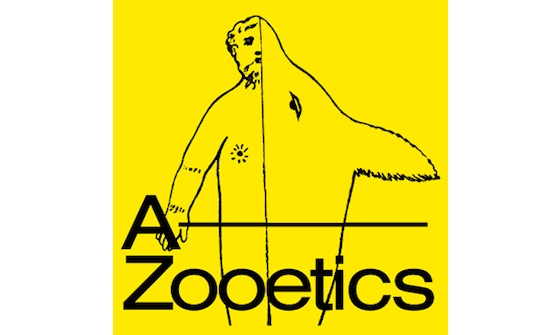11 Dec 2018
Events
Zooetics: Nature
Friday, 12 December,Kaunas University of Technology, Lithuania
Zooetics is a series of public lectures at Kaunas University of Technology, Winter 2014. Leading thinkers across the fields of humanities, design and engineering will unpack the notions of Interspecies, Anthropocene and Nature, and propose new conjunctions across these ideas. The Lectures are free but it is essential to book since places are limited.
Skylar Tibbits – Self-Assembly & Programmable Materials
There is a disciplinary convergence upon us, one that spans from the nano-scale to the human-scale. We are now able to program nearly every material from bits to DNA, proteins, proto-cells, smart materials, even products and infrastructure. There is a growing demand to translate these capabilities into solutions for large-scale applications rather than purely small-scale technologies. The Self-Assembly Lab aims towards the built-environment, from manufacturing, construction, infrastructure and products to develop more adaptive and highly resilient systems. They have demonstrated that self-assembly is scale-independent and have produced prototypes transforming from 1D, 2D to 3D and even 4D Printing aimed at inventing a future of programmable built environments.
Caleb Harper – Future of urban food research: CityFARM
The world is currently one generation away from global food insecurity. By 2030, 9 billion people will populate the globe and 6 out of every 10 people will live in cities. Subsequently, the future of global food production will mandate a paradigm shift away from inefficient, environmentally detrimental practices to more resource efficient, environmentally sound, urban food growing solutions. Thus, CityFARM.
CityFARM is a commercially scaled food production system which can efficiently produce high quantities of quality fruits and vegetables in urban areas. It uses highly innovative aeroponic growing technologies and integrates them into the urban environment; simultaneously the CityFARM methodology eliminates chemical pesticides and reduces water consumption by 98%. Significantly, by deemphasizing distant location/soil based growing, environmental contamination will be reduced, water supplies will be preserved, and ground water can be protected from contamination. Long haul fuel costs and carbon emissions will be reduced, food waste due to transport will diminish, and supply will be less susceptible to weather and seasonal instability.
The metrics of CityFARM are advantageous and highly productive. A 1200 sq ft area of CityFARM yield is equal to the yield of 1 acre of arable land. When CityFARM is integrated into an urban residential development, a thin band of façade (6ft x 60ft x 20 stories) is capable of feeding 80,000 people annually. It can generate $2-3.5M in gross sales, reduce urban food costs, increase accessibility to quality food, and create new urban jobs.
Skylar Tibbits is a Research Scientist in MIT’s Department of Architecture, teaching graduate and undergraduate design studios and co-teaching ‘How to Make (Almost) Anything’, a seminar at MIT’s Media Lab. He was recently awarded a 2013 Architectural League Prize, The Next Idea Award at Ars Electronica 2013, the Visionary Innovation Award at the Manufacturing Leadership Summit, a 2012 TED Senior Fellowship and was named a Revolutionary Mind in SEED Magazine’s 2008 Design Issue. MIT’s Self-Assembly Lab, directed by Skylar Tibbits, focuses on self-assembly and programmable material technologies for novel manufacturing, products and construction processes. He is the founder and principal of a multidisciplinary design practice, SJET LLC.
Previously he worked at design offices including Zaha Hadid Architects, Asymptote Architecture and Point b Design. He designed and built large-scale installations at galleries around the world, has been published extensively in, for examples, the New York Times, Wired, Nature, Fast Company. He has a Professional Degree in Architecture and minor in experimental computation from Philadelphia University. Continuing his education at MIT, he received a Masters of Science in Design Computation and a Masters of Science in Computer Science under the guidance of Patrick Winston, Terry Knight, Erik Demaine and Neil Gershenfeld.
Caleb Harper is the founder of the CityFARM research group within the City Science Initiative at the MIT Media Lab. He leads the anti-disciplinary group of engineers, architects, urban planners, economists and plant scientists in the exploration and development of high performance urban agricultural systems. His current work is focused in the areas of building integrated and control environment agriculture, actuated sensing, control automation and data-driven resource and energy optimization. Caleb has recently launched the OpenAG network and with strategic partners in the food industry, government and academia to develop the world’s first open source “AG Tech” research collective for the creation of the global agricultural data commons. In addition to his role at MIT, Caleb is a consultant to multiple international development agencies on high-density low-income urban housing projects and has worked professionally on development projects in the high tech space including data centers, healthcare and fab facilities.

